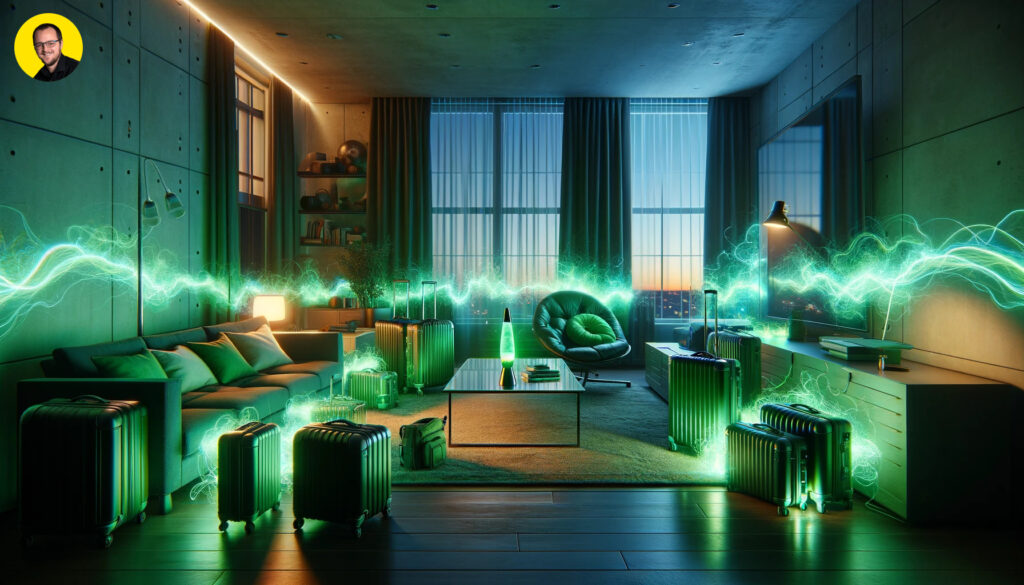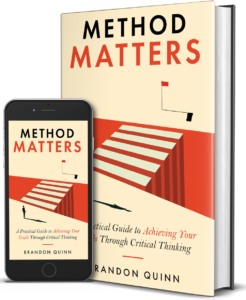
In August 2023, I left my apartment in New Jersey to fly down to Florida to help my family navigate through a situation that came up. I was originally planning to be in Florida for a week before flying back, but I thought it prudent to prepare for the eventuality that I would be away for much longer. I wrote down a list of tasks on my whiteboard and erased them as I completed them slowly over the course of a few days. The most important tasks were to turn off the lights and other electronics so I can save money on my electricity bill while I was out of town.
I spent time considering which electronics to turn off and leave on. I made sure to turn off the air conditioners, as that was probably the highest expense. I have two computers I like to use as servers for my personal use so I decided to leave those on. I turned off all monitors and TVs, as those consume a lot of energy if left on for an extended period of time. I have a few Amazon Alexa devices, but I didn’t bother to turn them off since they consumed very little energy. Lastly, I have two small lava lamps, but I decided to leave them on because I thought it would be cool to have them on in the dark apartment while I was away (not exactly a rational approach but I figured it would only add cents to my monthly electric bill). On my way out of the apartment, I hit the master light switch that controls all of the lights in my apartment, locked the door, and headed to the airport.
I am glad I took those steps to prepare my apartment, as I ended up staying in Florida much longer than originally intended. Roughly a month after my departure, I received my electric bill for August and saw that it was much lower than it would have been had I stayed. It was still higher than I would have preferred, but it included the portion of August that I was still at my apartment so I figured that was the major contributor to the bill. A month later, I was still in Florida when I received a new bill and saw that it was more than $60. I was very surprised at this since I was not at my house at all during the time period this bill applied to. I checked with the electric company, and they confirmed the bill was accurate and that there were no wiring issues at play.
I spent some time considering where I went wrong in my preparations. I determined that the possible sources of unanticipated high energy consumption were the Alexa devices, the lava lamps, and my personal servers. However, I looked up the exact consumption rates of these devices and found that combined, they should have only contributed a few dollars at most to my monthly bill, so I was left without a conclusive answer.
When I returned to my apartment, I hit that light master switch, unpacked, and settled in. A few days later, as I was leaving my apartment to head to work, I hit the master switch and then walked over to get my bookbag. As I reached for it, I noticed a light coming from my bedroom. When I walked over, I realized that the master switch did not actually turn off any of the lights in that room. I toggled the switch a few times to confirm this. I also confirmed that I could not see any sign of my bedroom’s lights from the position of the master switch. This was the reason my electricity bill was higher than expected.
This left me with an interesting question: why hadn’t I accounted for this possibility initially or when reviewing my $60 bill? I followed the same methods of critical thinking as I’d used in the past to prepare effectively, yet this time, they came up short. The reason that I failed to account for this possibility is because of the sneaky, unconscious assumption that the master light switch works for all lights. It isn’t an unreasonable assumption since it does work for all lights within my field of view from the master switch, but since I’d never considered the possibility, it was still an assumption nonetheless.
Assumptions are the bane of critical thinking. They can crop up at any point in the critical thinking process and are often hard to detect. In many cases, assumptions come from personal beliefs and biases, but in other cases, they come from implicitly trusting information. This scenario exemplifies the latter; I trusted that the master switch correctly fulfilled its purpose without giving it a second thought. This trust didn’t come from a source of personal desire or bias, yet the effect was the same. In some ways, this kind of assumption is easier to overcome as it isn’t rooted in emotion or deep belief. In other ways, it is more difficult to detect, as the impact of emotion and bias on a reasoning process can sometimes be easier to detect than an assumption that is not based on bias.
To overcome the impact of assumptions on critical thinking, you must apply a combination of logic and creativity. Logic helps you discover inconsistencies and derive new information given the available information. Creativity helps you to change the dynamics of the topic of consideration by adding and removing constraints, brainstorming alternatives that may or may not be logically sound, and opening up paths of thought different than the strict-but-effective paths that are formed by logical reasoning. These approaches can help you to recognize assumptions explicitly, or they can help mitigate the consequences of those assumptions regardless of whether you actually recognize they are present.
Thinking back, I could have found this issue with the master light switch in multiple ways. I could have explicitly questioned the assumption that the master switch works for lights in all rooms. I also could have turned off the lights and then walked through the apartment to ensure all tasks were completed. I could also have turned off the lights room by room to see that the lights were off for myself. Only the first approach involved recognizing the assumption, yet all three would have lowered my electricity bill.
Ironically, this misstep in critical thinking took place right as I was wrapping up the contents of my new book Method Matters: A Practical Guide to Achieving Your Goals Through Critical Thinking. This demonstrates that, while the methods of critical thinking are effective, learning them does not guarantee success. You must practice them as effectively as possible and learn from instances where you need to apply them effectively or make mistakes while doing so.
If you enjoyed reading this post, please consider reading my book Method Matters on Amazon!
Subscribe for book updates!

I’m just wondering who, where, EVER heard of a “master light switch?” Building code in my state wouldn’t even allow it – you’d have to switch off a bunch of circuit breakers. The closest I’ve ever seen is a single switch that turns on or off multiple outlets in one room, so you can plug lights in and switch them from the doorway. But NEVER for rooms you can’t even see if you turned the light off.
So I’d say that assuming there even IS such a thing as a “master light switch” was the flawed assumption, and assumptions about how it works are secondary.
Did this happen in a place where such switches are legal and common? The article claims New Jersey.
Master light switches may not be common in your state, but the concept certainly isn’t unheard of.
In my case, the landlord specifically told me the switch I referred to in the post is “the master light switch that controls all lights built into the unit.” My apartment has ceiling lights in every room, and since they’re built into the ceiling, they are not plugged into any outlets. They can also be turned on and off independently of the master switch, so I can individually turn lights on and off after I’ve hit something on the master switch.